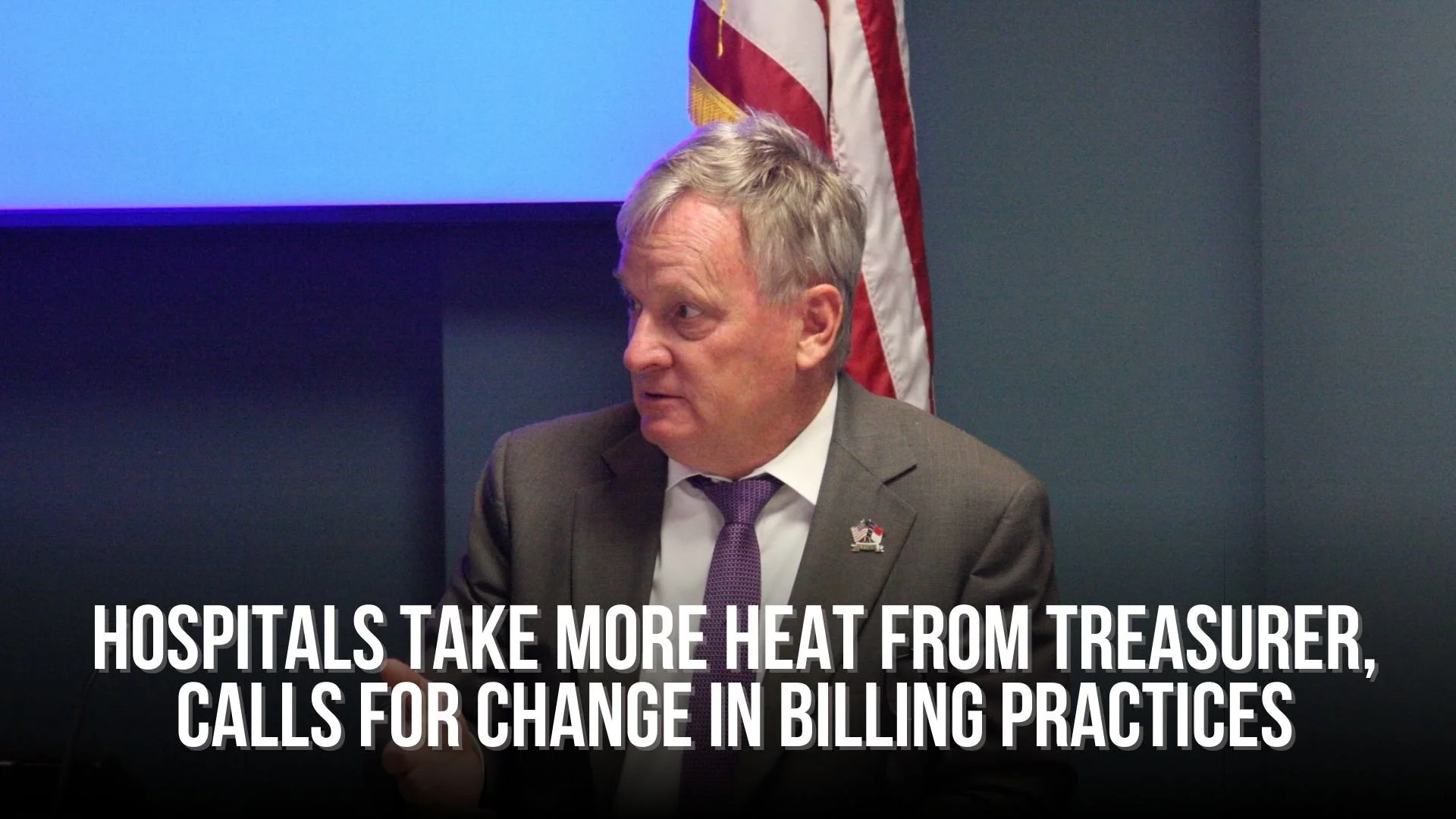Governor Roy Cooper and NCDHHS Secretary Kody Kinsley visited and toured King’s Pharmacy & Compounding Lab in New Hanover County, a local pharmacy distributing COVID-19 vaccines.
All in Health
Innovative healthcare payment and delivery to be piloted in North Carolina
To improve the health of Medicaid beneficiaries, and to reduce costs, the North Carolina Department of Health and Human Services is building an innovative health care delivery system with a payment structure that rewards better health outcomes, integrates physical and behavioral health, and invests in non-medical interventions. The effort is part of Managed Care Transformation.
Attorney General Josh Stein wins nearly $1.5 million in health care settlements
Attorney General Josh Stein today announced two civil health care settlements through his office’s Medicaid Investigations Division (MID) that will refund nearly $1.5 million to the North Carolina Medicaid Program.
Hospitals take more heat from Treasurer, calls for change in billing practices
State Treasurer Dale Folwell is once again sounding the alarm on some nonprofit hospitals in the state, with a new report that shows low-income patients are being billed when they were eligible for charity care. This comes on the heels of a similar report released in October by Folwell, who oversees the State Health Plan for government employees, the largest health insurance plan in the state.
POLL: Majority of likely Dem voters want fines, home confinement for the unvaccinated
A new Rasmussen poll finds that a majority of likely Democratic voters favor taking strong action against Americans who are not vaccinated against COVID-19, including fines and home confinement.
NCDHHS to host livestream fireside chat and tele-town hall
The North Carolina Department of Health and Human Services will host a live fireside chat and tele-town hall on Jan. 20 from 6 to 7 p.m. to discuss COVID-19 vaccines, boosters, testing and more.
NCDHHS Employee receives 2022 John R. Larkins Award
Debra Farrington, chief of staff for NC Medicaid, was honored today as the recipient of the 2022 John R. Larkins Award.
North Carolina secures more COVID-19 tests and community testing sites
In the face of nationwide competition for testing supplies and shortages of testing staff, the North Carolina Department of Health and Human Services is pulling all available levers to support existing testing sites, to open more sites across the state and to increase access to at-home collection kits.
Wait time for Moderna COVID-19 booster shortened to five months
The FDA now authorizes and the Centers for Disease Control and Prevention recommends individuals who received the Moderna COVID-19 vaccine get a booster dose after five months. This announcement from federal agencies comes just three days after the announcement of a shortened wait time for a booster from six months to five months for individuals who received the Pfizer vaccine.
NCDHHS school guidance encourages vaccines and masking to keep students in the classroom; Provides new test-to-stay option
With COVID-19 cases reaching pandemic highs, the North Carolina Department of Health and Human Services urges K-12 schools to promote vaccination and boosters for students and staff and require students and staff wear masks indoors to keep students in the classroom and limit the risk of COVID-19 transmission.
FDA shortens interval for Booster dose of Moderna COVID-19 vaccine to five months
The U.S. Food and Drug Administration amended the emergency use authorization (EUA) for the Moderna COVID-19 Vaccine to shorten the time between the completion of a primary series of the vaccine and a booster dose to at least five months for individuals 18 years of age and older.
Chief Justice Paul Newby proclaims January 2022 as Human Trafficking Awareness Month
Supreme Court of North Carolina Chief Justice Paul Newby has proclaimed January 2022 as Human Trafficking Awareness Month in the Judicial Branch by way of a judicial order.
COVID-19 boosters recommended for children ages 12 to 15, additional dose recommended for immunocompromised children ages 5 to 11
The Centers for Disease Control and Prevention yesterday announced it recommends the Pfizer COVID-19 booster for children ages 12 to 15 to further protect them from COVID-19. The CDC also recommends a third dose of Pfizer for children ages 5 to 11 who have compromised immune systems.
Cooper extends vaccine, testing requirements for state employees
Gov. Roy Cooper on Tuesday, Jan. 4, said health experts, doctors, and scientists are learning more about COVID-19, and state officials and politicians are using that knowledge to keep schools open and to avoid more onerous shutdowns and suppressions.
Governor Cooper and NCDHHS Secretary Kinsley stress importance of vaccines and boosters to combat Omicron Variant
With cases of COVID-19 reaching record highs and hospitalizations increasing, Governor Roy Cooper and North Carolina Department of Health and Human Services Secretary Kody H. Kinsley called on all North Carolinians to get vaccinated and get a booster as soon as they are eligible to protect themselves from severe illness from the highly contagious Omicron variant of COVID-19.
Officials encourage boosters as COVID-19 hospitalizations rise
With hospitalizations due to COVID-19 rising, getting a booster of the COVID-19 vaccine remains the most important thing North Carolinians can do to keep themselves and their loved ones out of the hospital, officials with the North Carolina Department of Health and Human Services today announced.
FDA authorizes first oral antiviral for treatment of COVID-19
The U.S. Food and Drug Administration issued an emergency use authorization (EUA) for Pfizer’s Paxlovid (nirmatrelvir tablets and ritonavir tablets, co-packaged for oral use) for the treatment of mild-to-moderate coronavirus disease (COVID-19) in adults and pediatric patients (12 years of age and older weighing at least 40 kilograms or about 88 pounds) with positive results of direct SARS-CoV-2 testing, and who are at high risk for progression to severe COVID-19, including hospitalization or death
Senator touts N.C. budget's measures to attack human trafficking
A state senator is drawing attention to the new N.C. state budget's measures to fight human trafficking.
Health experts warn of significant impact from Omicron variant of COVID-19; NCDHHS urges everyone to get vaccinated
Health experts are warning that the highly contagious COVID-19 variant, Omicron, is expected to cause the greatest surge in COVID-19 infections to date in the coming months. The CDC and NCDHHS urge people to get vaccinated with an mRNA vaccine (Pfizer or Moderna) as soon as possible and to get a booster as soon as they are eligible to help prevent serious illness, hospitalization and death.
Governor Cooper: Get tested ahead of holiday gatherings and get boosted if you’re eligible
Governor Roy Cooper and North Carolina Department of Health and Human Services Secretary Mandy K. Cohen, M.D. provided an update on the state’s COVID-19 key metrics and trends.




















